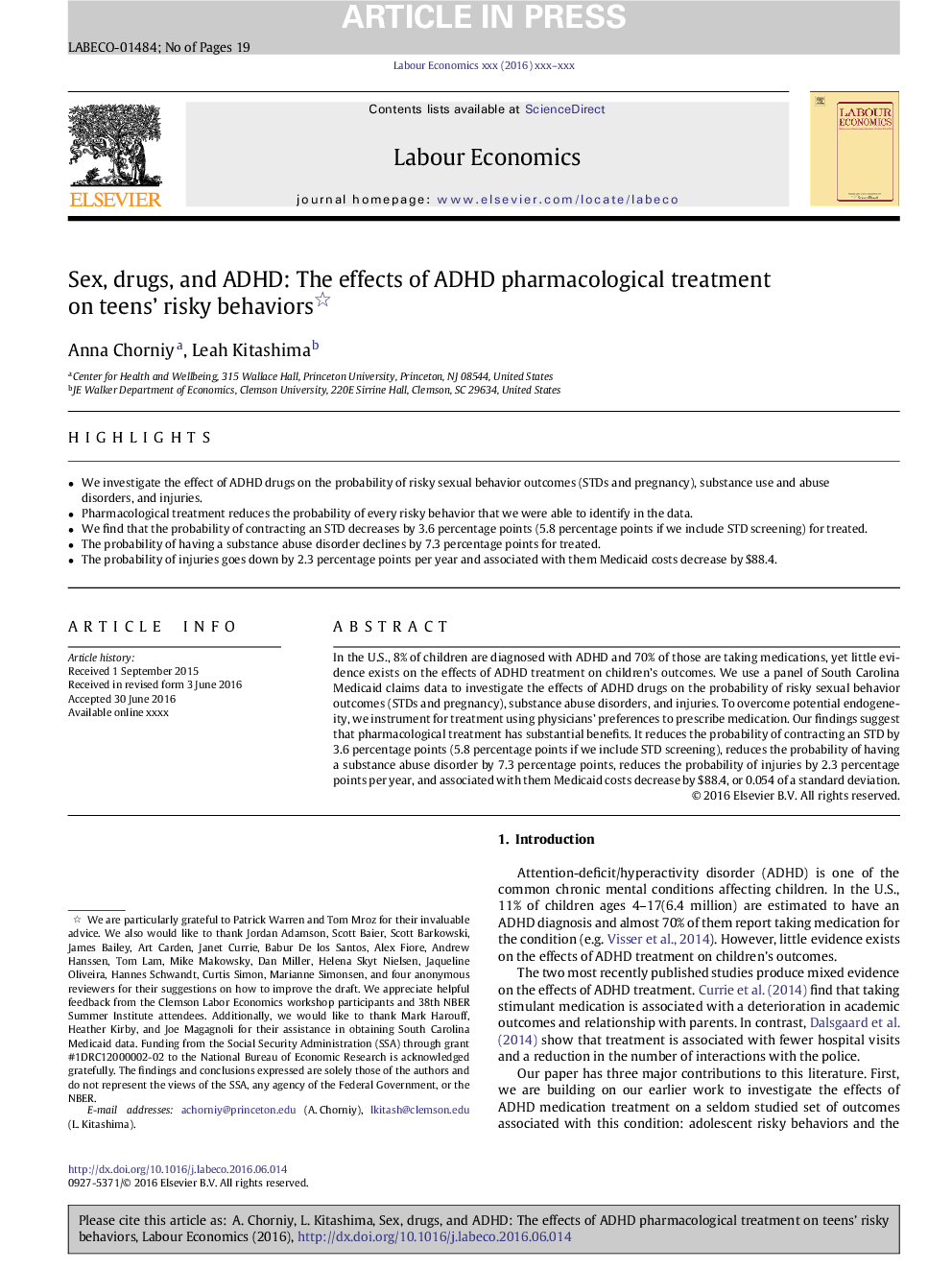| Article ID | Journal | Published Year | Pages | File Type |
|---|---|---|---|---|
| 5102060 | Labour Economics | 2016 | 19 Pages |
Abstract
In the U.S., 8% of children are diagnosed with ADHD and 70% of those are taking medications, yet little evidence exists on the effects of ADHD treatment on children's outcomes. We use a panel of South Carolina Medicaid claims data to investigate the effects of ADHD drugs on the probability of risky sexual behavior outcomes (STDs and pregnancy), substance abuse disorders, and injuries. To overcome potential endogeneity, we instrument for treatment using physicians' preferences to prescribe medication. Our findings suggest that pharmacological treatment has substantial benefits. It reduces the probability of contracting an STD by 3.6 percentage points (5.8 percentage points if we include STD screening), reduces the probability of having a substance abuse disorder by 7.3 percentage points, reduces the probability of injuries by 2.3 percentage points per year, and associated with them Medicaid costs decrease by $88.4, or 0.054 of a standard deviation.
Related Topics
Social Sciences and Humanities
Economics, Econometrics and Finance
Economics and Econometrics
Authors
Anna Chorniy, Leah Kitashima,
